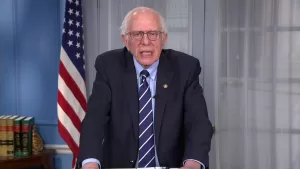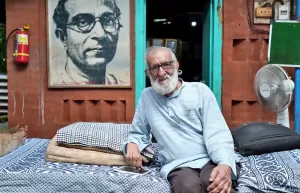Narendra Modi’s dream of becoming a vishwaguru has come true, just not in the ways he would have liked to. Instead of becoming an exemplar of visionary leadership to the rest of the world, India’s prime minister has become a case study on how not to handle a pandemic (or manage an economy, or run a country).
The blame for India’s cataclysmic COVID-19 crisis lies primarily with its prime minister, of this there can be no doubt. As Reuters reported, “a forum of scientific advisers set up by the government warned Indian officials in early March of a new and more contagious variant of the coronavirus taking hold in the country… [But] the government took no steps to prevent gatherings that might hasten the spread of the new variant, as new infections quadrupled by April 1 from a month earlier.”
Not only did it not take steps to prevent large gatherings, it actively promoted them, both at election rallies and at the Kumbh Mela, with close to ten million gathering on the banks of the Ganga.
At a time when other countries were ramping up preparations for the next inevitable wave, the Indian prime minister had already declared victory against the virus, and so did next to nothing to strengthen India’s fragile medical infrastructure for the coming onslaught.
But, even though the buck most certainly stops with Modi, there is a very real danger in blaming him alone for the devastation all around. Because if we do so, we will miss learning the critical lessons that we as a nation desperately need to learn. And if that happens, then, as George Santayana says, we will be doomed to repeat the mistakes that have brought us to this point.
So, what are these lessons?
Lesson 1: Electoral choices have lasting consequences
This may seem like a painfully obvious point, but the fact is that the government which has failed us so spectacularly during the biggest crisis of our collective existence is the government which was elected by the people of India (though, thankfully, not all the people of India). The Indian electorate gave Modi and the Bharatiya Janata Party (BJP) a brute majority in the Lok Sabha not once, but twice. It is a decision many are now deeply regretting, because the same Modi that so many had placed such great faith in, has now told the people of India to be atmanirbhar, that they are, for all practical purposes, now on their own.
This Great Abandonment (tears on television notwithstanding) has been amply borne out by the fact that, at the time of this writing, only a shocking 1.6% of India’s 140 crore people have been fully vaccinated. The question, “If not Modi, who?” is now being rapidly replaced with an angry “Because of Modi, this!”
Perhaps if we had cast our ballots more thoughtfully and not fallen repeatedly for what can now only be called the Great Lie, we might have had a government that was more concerned with managing the pandemic than with managing the perception of how it is handling the pandemic.
Lesson 2: Ignore history at your own peril
Ignorance of the law, it has been said, does not give you license to break it. Ignoring a demagogue’s history, likewise, does not exonerate you from your moral culpability in having supported him. It has been disappointing and more than a little nauseating to see many world leaders, captains of industry, academics, and, of course, journalists, only too willing to overlook Modi’s murky past.
A case in point is Pratap Bhanu Mehta. The professor’s resignation/removal from Ashoka University earlier this year caused much dismay and hand-wringing in liberal urban circles, but it is good to remember that while he may now have come to regret it, a mere seven years ago the good professor was very much amongst those willing to overlook Modi’s fascist antecedents. When Modi won a landslide victory in 2014, Mehta exulted:
(The new prime minister) “embodies the quintessence of politics: converting adversity into opportunity. … He was an outsider, demonised by the intelligentsia, with a Central government arrayed against him. But he has broken through and will now produce the biggest churning that India’s power structure has seen since Independence.”
Mr. Mehta’s prophecy has now come to pass, though probably not in the way he expected. Like him, far too many Indians, famous and otherwise, here and abroad, chose to ignore Modi’s history. Today, we are all paying the collective price.
Lesson 3: Heed the signs
Coming events cast their shadows before, but we failed to see them. Perhaps it is because we chose not to.
Something should have rung a bell when the person holding the highest executive office in the land cheerfully told attendees at a hospital inauguration in 2014, “A plastic surgeon may have fixed an elephant’s head on Ganesha,” or school children in 2015, “There is no such as thing as climate change; we are the ones getting older.”
Something should also have alerted us when the same person regaled IIT scholars with the story of a tea seller who channelled sewer fumes to make tea, or who told TV anchors that he gave the order for Indian Air Force planes to attack Balakot on a cloudy day, because the clouds would prevent the radars from detecting them!
These, and other such revealing incidents, should have warned us that scientific temper is not our prime minister’s forte. It should have told us that this was not the person we needed leading us through national crises which inevitably come in the life of a nation. Next time, we need to vote for a man or woman who respects expert opinion and the hard facts of science.
Lesson 4: Hate will come back to hurt the hater
Let’s face it. Far too many people voted for Modi because they wanted a ’Hindu Hriday Samrat’ to teach Muslims a lesson and ‘put them in their place.’ The problem with electing a divisive leader, though, is that his divisiveness will ultimately end up hurting everyone, not just those we hate. Those who lustily cheered when the prime minister talked of shamshaans and kabristaans are now seeing there is space in neither to cremate or bury the dead.
Hatred has a way of boomeranging, and the fire that we have kindled to destroy our neighbour’s house has now burned down ours, too. If there is one thing that this tragedy should teach us, it is that we are all part of the interconnected whole and what happens to one will affect all. If there is anything this pandemic should have taught us, it is that we need leaders who will spend their mandate building and uniting, not dividing and destroying.
Lesson 5: In a democracy, silence is never golden
Ervin Staub, professor Emeritus of Social Psychology at the University of Massachusetts, and best known for his work on altruistic behaviour, has spent a lot of time studying the psychology of the Germans and their treatment of the Jews in Nazi Germany.
Staub studied the cruelty and hatred meted out to the Jews, and found that one of the roots of such evil was the turning away, or choosing not to see or know, of bystanders. Their silence and inaction was read by the perpetrators as tacit approval. But, Staub noted, if these bystanders had spoken up in protest of the evil happening in front of them, it would have made such acts much more difficult for the perpetrators.
That is perhaps one of the most biggest lessons we as 21st century Indians need to learn. Far too many of us chose to stay silent over the last seven years. Because, let’s face it, who wants to face the nastiness of the mob? But it is important to realise that our silence has encouraged the bigots on social media and the lynch mobs on the streets. Instead of hiding in our cocoons of self-preserving silence, if more of us had clearly and consistently spoken out against the growing hatred and bigotry, and if more of us had called out the pseudo-scientific nonsense of ‘gurus’ like Ramdev and Jaggi Vasudev, then perhaps, as a nation, we could have avoided reaching this point.
This might be an odd metaphor to end on, but our prime minister is not unlike a child throwing a tantrum in a mall because mummy and daddy have not bought him the toy of his choice. A child throws a tantrum because his parents have not set the boundaries to curb his self-entered, egocentric, selfish and greedy tendencies. We, the citizens of India, too, have failed to curb our prime minister’s infantile desires. That is why, in the middle of the worst crisis India has ever known, he is now spending Rs 20,000 crore of public money and building himself a brand new house in Central Vista and knocking down everything that does not remind him of himself.
It is too late to expect anything noble and worthwhile from this prime minister. But it is not too late to expect better things from the next one. It’s up to us now.
(Rohit Kumar is an educator with a background in positive psychology and psychometrics. He works with high school students on emotional intelligence and adolescent issues to help make schools bullying-free zones. Courtesy: TheMediaCoffeeTeam.)




